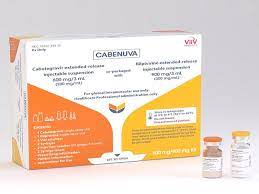Pfizer Inc. (NYSE: PFE), a titan in the healthcare sector, has long been a stalwart in the drug manufacturing industry. Headquartered in New York, Pfizer boasts a market capitalization of $145.83 billion, underscoring its substantial impact and reach across global markets. With a robust portfolio that includes renowned brands like Eliquis, Comirnaty, and Paxlovid, Pfizer remains at the forefront of innovation and distribution within the biopharmaceutical landscape.
Currently trading at $25.65, Pfizer’s stock has seen a minor decrease of 0.01% recently. The stock’s 52-week range between $21.59 and $31.39 reflects the volatility seen in the market, influenced by broader economic factors and sector-specific challenges. Notably, the stock is positioned close to its 200-day moving average, a technical indicator often watched by investors for signs of long-term momentum.
A standout feature for investors is Pfizer’s impressive dividend yield of 7.10%. This high yield could be particularly attractive in the current low-interest-rate environment, offering a reliable income stream. However, the payout ratio of 122.46% suggests that Pfizer is currently paying out more in dividends than it earns, which may raise questions about the sustainability of such a high yield in the long term.
From a valuation perspective, Pfizer’s forward P/E ratio sits at an attractive 8.31, indicating potential undervaluation compared to the broader market and suggesting that investors may still have room for growth. However, the absence of trailing P/E and PEG ratios may signal existing challenges in consistent earnings growth.
Recent performance metrics reveal a revenue contraction of 7.80%, a figure that warrants attention from investors. Despite this, Pfizer’s free cash flow of over $15 billion remains a significant strength, providing the company with flexibility to invest in new projects, pay down debt, or return value to shareholders.
Analyst sentiment towards Pfizer is mixed, with 9 buy ratings, 15 hold, and 1 sell. The average target price of $29.24 offers a potential upside of 13.99%, presenting an intriguing opportunity for those considering an entry point into the stock. The broad target price range from $23.00 to $42.00 reflects varying opinions on Pfizer’s short-term prospects.
Technically, Pfizer’s RSI of 62.91 suggests that the stock is approaching overbought territory, while the MACD indicator shows positive momentum. These indicators could imply further upside if current trends continue.
Pfizer’s strategic collaborations, including partnerships with Bristol-Myers Squibb and BioNTech, are key components of its business model, enhancing its capacity to innovate and expand its product offerings. The company’s focus on addressing unmet medical needs across a range of therapeutic areas further solidifies its position in the industry.
For investors, Pfizer offers a blend of high dividend yield and potential capital gains, albeit with considerations around revenue trends and dividend sustainability. As Pfizer continues to navigate the complex healthcare landscape, its ability to leverage scientific advancements and strategic partnerships will be critical in maintaining its industry leadership.








































